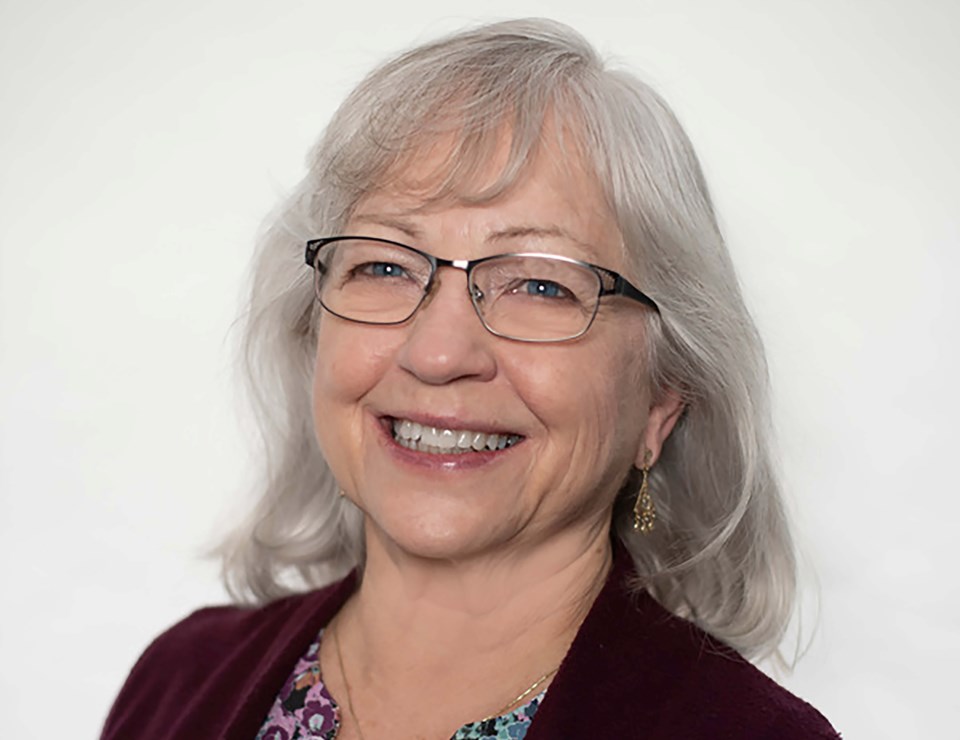Metaphysical sparks flew when Annie met Herb.
She was introduced to the respected indigenous teacher and author from Northern Ontario by a mutual friend in Fort Wayne Indiana.
“It was very much a spiritual connection,” said Annie Wenger-Nabigon. “It became clear to us that we had the opportunity to create a life together that was going to be quite unique and special.”
A week after the first meeting, Herb Nabigon asked Annie Wenger if she would marry him.
“Aren’t there a whole line of Annishnabe women up there in Ontario just waiting for you?” she asked.
There were. But after years of searching, Herb found his soulmate.
The couple went on a wonderful journey together that was cut short when cancer claimed Nabigon’s life in 2016.
Nabigon is the author of The Hollow Tree, Fighting Addiction with Traditional Native Healing (2006).
The book is still used at universities and other institutions. He was preparing to write the sequel just before his passing. Wenger-Nabigon’s book, Enough Light for the Next Step, is her way of completing the project.
It's a love story and a memoir dealing with loss, love and spirituality.
“This book is not only a tribute to my late husband, Herb Nabigon and to his teachings, it is a tribute to myself, and to the journey of my life that was truly my own,” Wenger-Nabigon said. “We lived those teachings every day of our life together.”
The retired therapist and social work educator taught the last four years at Algoma University.
Wenger-Nabigon was born in Arkansas, the oldest child of Mennonite medical missionaries. She spent most of her childhood years in a Mennonite community in Lancaster, Pennsylvania, the traditional territory of the Susquehannock Peoples. In 2006 she met and married Herb Nabigon, a respected and loved elder of the Nishnaabeg Nation and professor in Native Human Services Social Work program at Laurentian University.
When Nabigon retired, they moved to Pic River First Nation. Then came the loss.
“The story behind that story was Herb’s knowledge from the beginning of our life together exactly how long he had on this ‘side of the camp,’ which he told me, but I did not understand,” wrote Wenger-Nabigon.
She continued her life journey without Herb's physical presence. She began to write and went to a workshop in the United States where she honed her literary skills.
“The return to Canada in 2018 was only an extension of the next step in a path to a new life. There was only enough light at that time for one small step at a time, but gradually, as I completed the book, I regained my footing,” she writes.
She retired from Algoma University on Dec. 31, 2021 and is looking forward to the next phase of her life.
That phase includes remarriage.
Wenger-Nabigon’s fiancee is an old friend she has known for 40 years. She will be moving with him to Urbana Illinois.
After so many twists and turns, will this be her new home?
“I can tell people where I’m from and I can tell people where I have lived. I’m still looking for home,” she said. “Herb and I were very close and home was in the heart. Home was Herb.”
Wenger-Nabigon said the way she told the story is a weaving together of themes from my past, and Herb’s past.
“It is similar to a traditional Indigenous story, going back and forth between territories and themes, times and locations. It is also similar to the simple stories I heard from my father, a devout Mennonite man whose life had been deeply scarred by trauma and loss,” she said.
Wenger-Nabigon said nobody should be intimidated by the book.
“It is not too complex for the average reader to grasp, yet it addresses complex issues. It is written to be accessible and attractive to the average person while at the same time it sheds light into the deepest of human experiences,” she says.
Wenger-Nabigon laughs at being biased when she says, “It’s an interesting book.”
“This is the kind of book I would pick up at a bookstore out of curiosity and be unable to leave behind,” she said.
The Sudbury book launch will take place on Saturday, April 2, 2022 at the Art Gallery of Sudbury starting at 7 p.m. Annie will be joined in conversation with Will Morin, University of Sudbury Indigenous Studies professor.
On April 11 Algoma University and Social Work Department will host a presentation.
Books can also be purchased online at https://latitude46publishing.com/, www.alllitup.ca, Indigo or ask your favourite bookseller to order.
